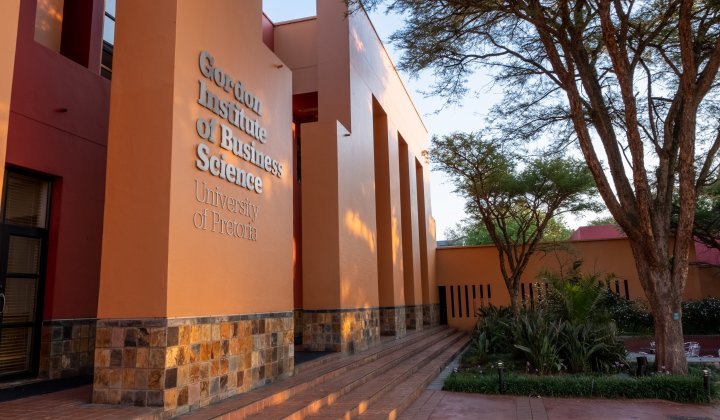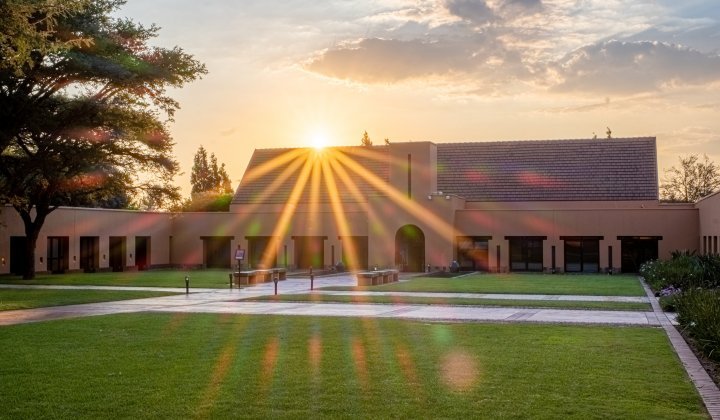A mindset becomes an asset to a leader, enabling him or her to make quick decisions suitable for the context in which their business operates. The context of South African businesses has significantly evolved as many South African companies such as MTN and the Shoprite group have ventured successfully across our border, and at a time when companies from abroad have brought their offerings into our markets. These global shifts require a new way of thinking – a global mindset, which is a powerful capability made up of intellectual, psychological and social competencies for influence in a global context.
Since South African leaders have solid cultural values but often operate on a global platform, it became important to study how the global mindset of black South African executives develops. Our study delved into the global mindset capabilities of leaders who have been successful in the international arena, and showed, as expected, a clear global mindset aptitude. From across multiple industries, not limited to sectors such as financial services, mining, and fast-moving consumable goods, and from both private and public businesses, black South African executives described business prowess, as well as psychological and social competencies that brought together the richness of their deep cultural experiences growing up, with the interpersonal insights they had gained throughout the world.
...we uncovered a self-assurance that came from black consciousness, as well as resilience and a deep-seated value of ubuntu...
Being African in a global world
Experts on the global mindset, Javidan, Hough and Bullough, in their paper Conceptualizing and measuring global mindset: Development of the Global Mindset Inventory, show that a global mindset includes not only knowledge and attitudes about different cultures, but also skills to deal with different cultures. It is a leadership asset that helps you to know how to operate across the globe in complex contexts where many differences exist. It is also an asset that helps leaders to be confident and seek out adventure in the differences they see. And importantly, it is a social asset that allows leaders to have empathy for different cultures in order to have interpersonal impact as a leader.
...ethnic regional separations birthed in the leaders a rich cultural awareness of their own identity...
We describe this capability of black South African executives in a white paper entitled The Distinctive Global Mindset of Black South African Executives.
We found, for instance, that the executives interviewed have intellectual leadership assets seen in their business savvy as well as the expressed cultural curiosity, a clear cosmopolitan outlook and desire for cognitive complexity. The leaders spoke of tackling complex issues, reading extensively and challenging themselves to study further. Interestingly, from their expression of psychological capital we uncovered a self-assurance that came from black consciousness, as well as resilience and a deep-seated value of ubuntu, and with that we found a passion for diverse voices and a quest for adventure.
The distinctive social capital they spoke about was particularly revealing of their leadership assets. One leader, for instance, emphasised living in a “negotiated world”. This speaks to a strong skill of being able to move through one set of cultural values to another in order to be effective. Such diplomacy was coupled the interpersonal impact that African values like respect and ubuntu bring into the workplace, as well as interpersonal impact through their heightened awareness of the suffering of others, and religious values.
As these African values and ability to navigate between different mindsets are so significant to operate in our business environment, we were curious how the executives’ global mindset developed in this context. Our white paper shows a unique journey. Many spoke of their times in the townships, in their pre-teen years, where ethnic regional separations birthed in the leaders a rich cultural awareness of their own identity, which today in itself is a source of cultural self-assurance. Many experienced during their teenage years an era of black ethnic integration. This developed a very special sense of black belonging, and the integration of different black cultures also sparked a passion for diversity. Today, this translates into the cultural curiosity of our leaders, along with a strong sense of brotherhood. Their early careers brought a new opportunity to develop a global mindset. This phase brought them even broader exposure to different cultures and races, and many took from that a desire for cultural understanding. We found that it was diverse cultural experiences, specific African values, and a love for culture – their own and that of others – that gave these leaders the leadership asset of a global mindset.
Beyond borders
We’ve long known that a global mindset is a highly demanded trait in a world that is increasingly global. All South African companies are in one way or another connected to global business, and therefore a strong global mindset is an important part of organisational success.
Global experience is essential for expanding one’s perspectives of how the world works. But it doesn’t necessarily mean travelling the furthest geographical distance.
In addition to working in South Africa, the executives we interviewed had worked on the continent in countries like Angola, Namibia, Cameroon, Tanzania and Nigeria. Some had worked in North America and Europe, while a few had temporarily settled in regions linguistically further afield such as Asia and South America. It became clear how important it is to people development to encourage employees to expose themselves more to the differences that exist in the work environment, both here and abroad.
We also understood that African values are important to our leaders’ success, especially the belief in the power of collaboration and having a solid work ethic. Almost all the executives spoke about the importance of building excellence in collaborative teams. A legal professional in an executive position in the FMCG sector spoke about “unleashing the power of the people” as a leader through common purpose. South African companies can build on these values that balance leadership with interpersonal dependence. The leaders also mentioned qualities of resilience and goal-directedness as being key contributors in developing a global mindset. One FMCG executive ascribes the reason for his success as follows: “because I was hungry, and I suppose the thirst to want to know more, to want to do better, to want to be better than anyone else, was probably inculcated in my upbringing.”
The insights from the executives demonstrate that we should draw on the assets that come from our cultures and values, and to do so, South African companies can delve deeper into what this means through transparent conversations about the individual cultural elements that shape the behaviour of people in teams. It’s crucial given culture’s role as one of the three enablers of a global mindset. We propose company-driven cultural identity conversations to balance multicultural identities in a global context. Encouraging these exchanges will also shape the global and local cultural intelligence of staff.
It is time for South Africans to truly embrace ubuntu in the workplace, to have sincere conversations about our cultural identities, to enjoy our differences, and to develop talent through exposure to our multicultural identities. With this we will have the leadership capacity to operate in different contexts, show empathy, and truly inspire and lead others. Our distinctive heritage, along with an openness to learn, enables leadership.
KEY TAKEAWAYS
There are three dimensions of a global mindset to look for if you’re wanting to recruit globally minded leaders or nurture the mindset in your existing team.
Intellectual capital: More than just a reflection of degrees and qualifications, intellectual capital reflects intangible assets held by people. For globally minded leaders these skills and knowledge can foster both domestic and international success. The intellectual component of a global mindset consists of:
· Global business savvy
· Cognitive complexity abilities
· Having a cosmopolitan outlook
Social capital: Ubuntu is the core of the black African culture that recognises people exist in relation to others, despite their cultural diversity. The social capital of leaders means that they can be empathetic towards others despite different cultural backgrounds, even understanding body language and gestures. Social capital is evidenced through:
· Intercultural empathy
· Interpersonal impact
· Diplomacy
Psychological capital: This refers to a set of resources a person can use to help improve their performance on the job and their long-term career success. Central to psychological capital is the distinctive values that people hold. These values differentiate those with a global mindset from others. They include:
· Passion for adversity
· Self-assurance
· Quest for adventure
How to effectively navigate cultural diversity
Understand your own heritage: Cultural norms impact workplace behaviour. Your background has taught you how to interact with people, and this is reflected in your interactions in the workplace. One of the black executives we interviewed talked about the people-centric nature of his culture, and how this affects his boardroom behaviour. He said being raised in a culture that is welcoming meant he walked into meetings with an open and embracing attitude. Examining your background will help you identify the ways in which it harms or helps your leadership development.
Understand the culture of others: One of the executives described cultural awareness in saying that if the majority of your workers happen to believe in a particular culture, you cannot pretend that those cultures don’t exist. His advice was that you’ve got to acknowledge those different cultures and then try to shape them in such a way that you respect and acknowledge them, but you get them to help you deliver the results you want.
Adjust for interpersonal differences: Knowing the influence of your culture and acknowledging the diversity of cultures in your team doesn’t mean communication is always going to be clear. Even when two people in Africa speak the same language, cultural differences due to upbringing may remain and these need to be constantly negotiated. For effective communication and understanding, you need to allow for cultural expression. Sometimes discussions need not be about the purpose or outcome of the conversation, but about the interpersonal interaction that takes place.





